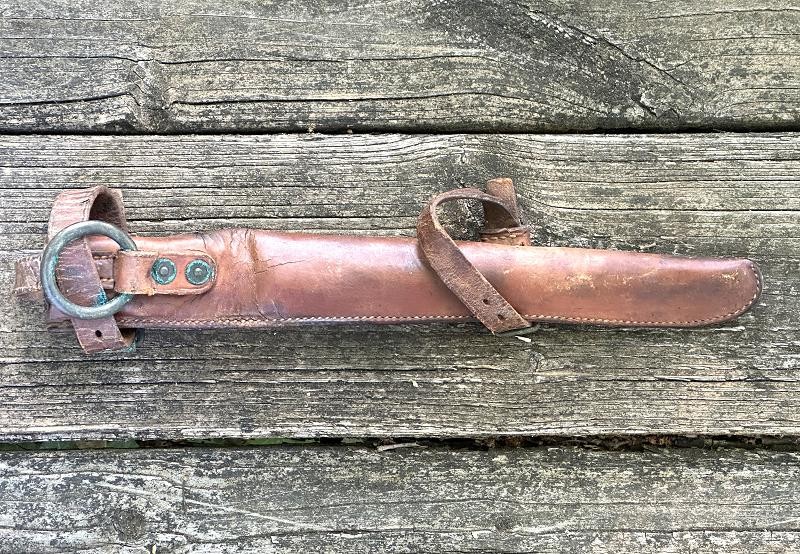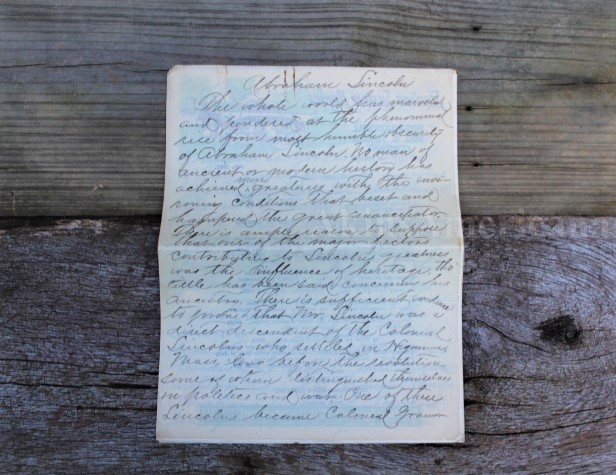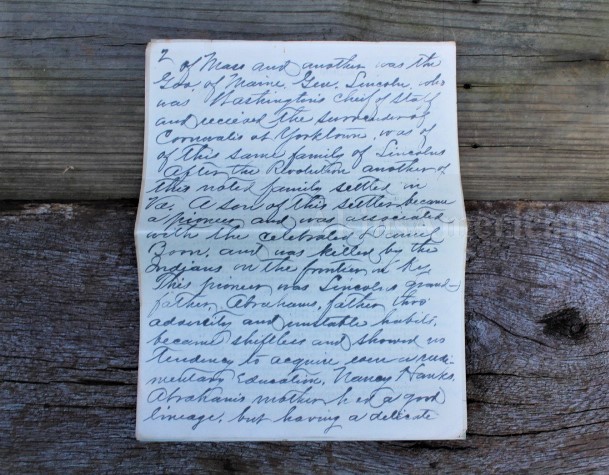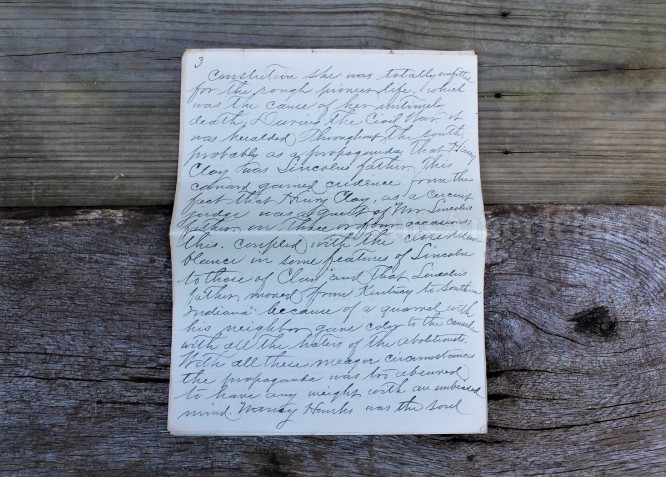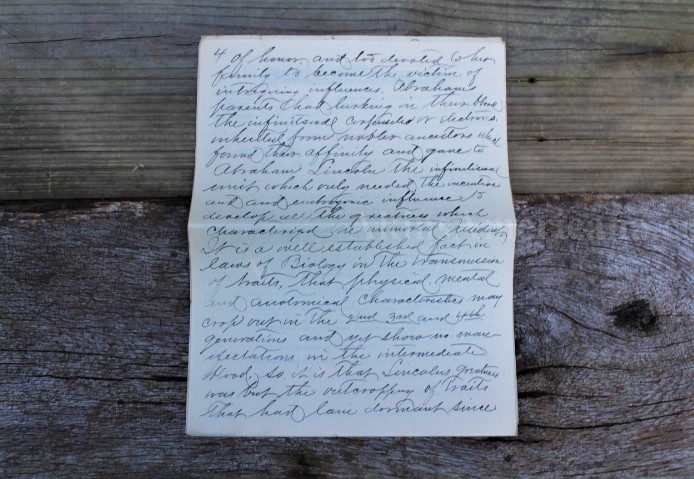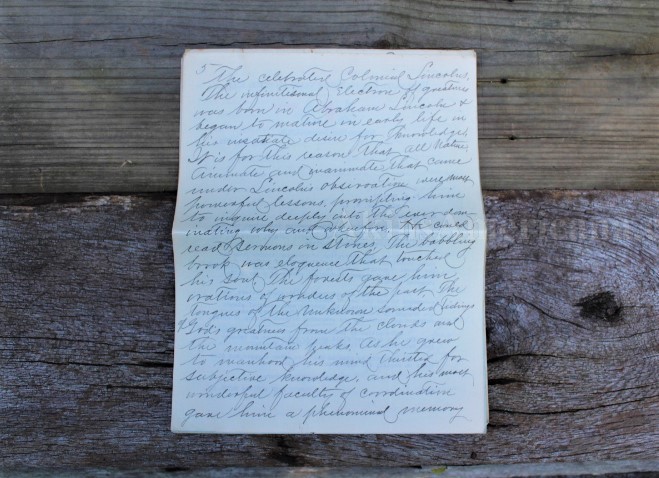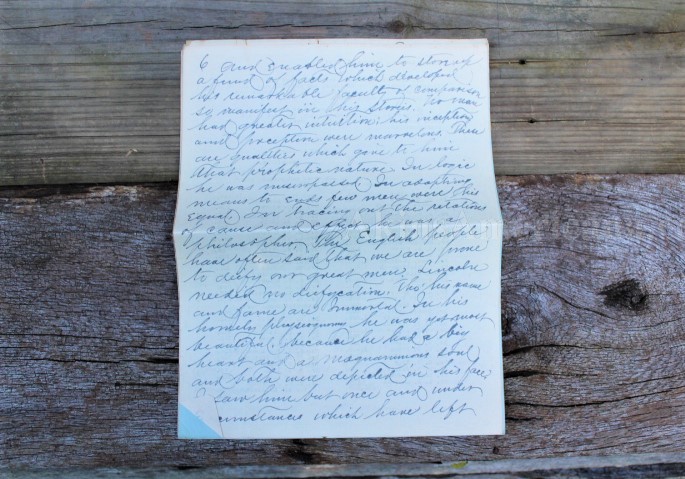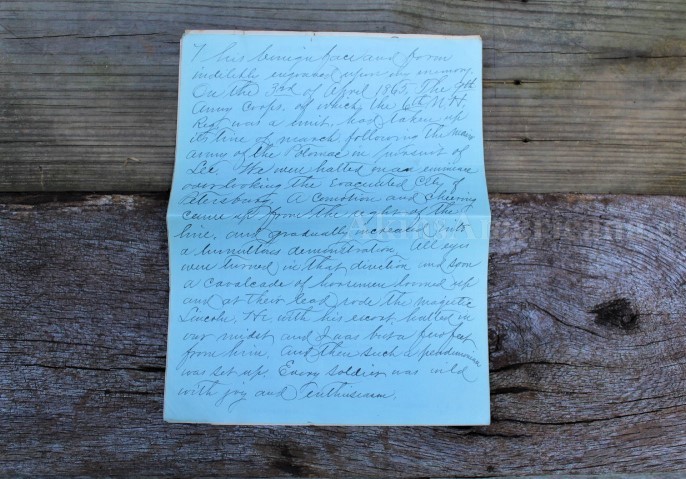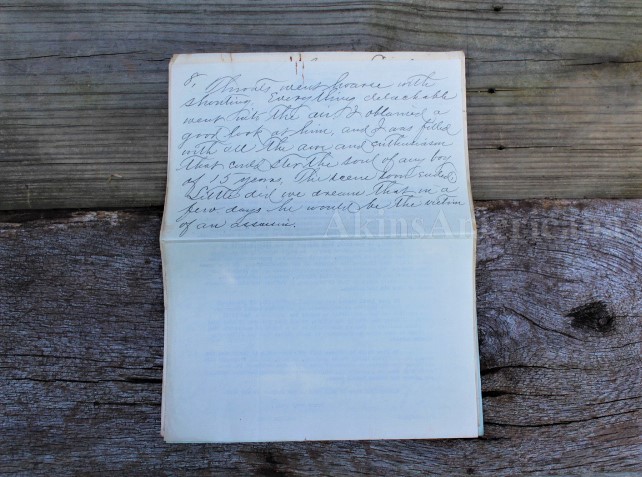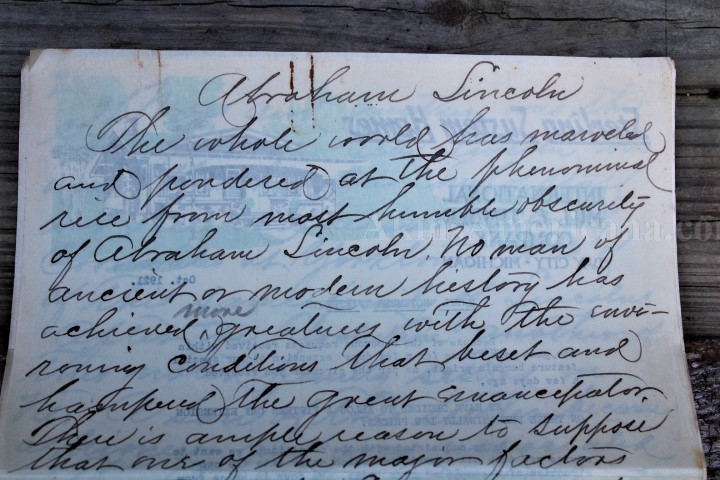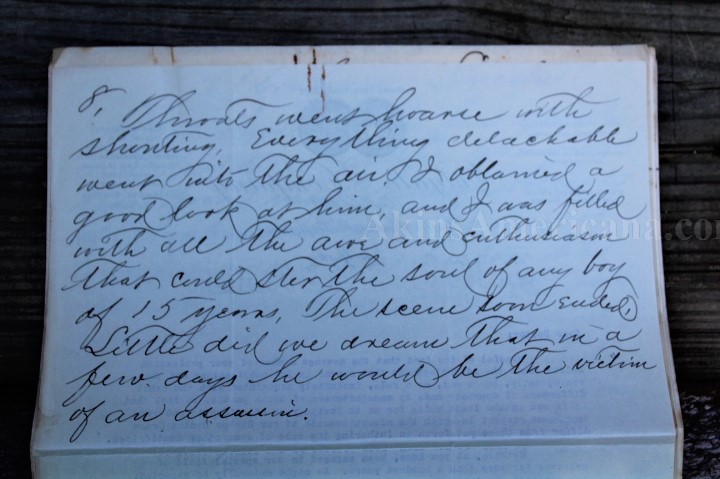Reflection of Abraham Lincoln by Frank A. Cargill
Item #: AA2132
Click on an image to enlarge
This is an eight page dissertation about Abraham Lincoln written by Frank A. Cargill, a Union veteran of the Civil War. Frank Cargill had enlisted as a Private at the age of 14, and was mustered in as a substitute in Company G of the 6th New Hampshire Infantry on 6 June, 1864. Records show that he was wounded at Petersburg, Virginia on 7 July, 1864, barely a month after he enlisted. Private Cargill was mustered out of the service with his unit on 17 July, 1865 at Alexandria, Virginia. Cargill went on to become a doctor and settled in Bridgeport, Connecticut. Dr. Cargill was active in the Grand Army of the Republic, and was the Department of Connecticut Commander in 1930. He died 2 March, 1932 at the age of 83. It is unknown if this paper was written as a professional document or of a personal nature. The text is hand written in cursive, and for the most part easy to read. It is written on the back of eight different pieces of "junk mail" received by Dr Cargill. It is titled Abraham Lincoln, and covers Lincoln's ancestry. Cargill covers Lincoln's heritage from the Colonial times up through Lincoln's assassination. Dr. Cargill researched Lincoln quite well, pointing out that his ancestors held positions of political power before the Revolutionary War. One was the Colonial Governor of Massachusetts, another the Governor of Maine. General Lincoln, who was George Washington's Chief of Staff, received the surrender of British General Cornwallis at Yorktown. The last two pages describe his own feelings of overwhelming emotion when he saw Abraham Lincoln at Petersburg, Virginia in April of 1865. At that time Cargill was a 15 year old private in G Company, 6th New Hampshire Volunteer Infantry Regiment. Unlike the other documents listed written by him, this one does not have Dr. Cargill's address or the date it was written. The paper is unlined and some have turned a light brown in color. This provides some insight into a common soldier's mind of what he thought of the what possibly was the Civil War's costliest casualty.
(Sold)

